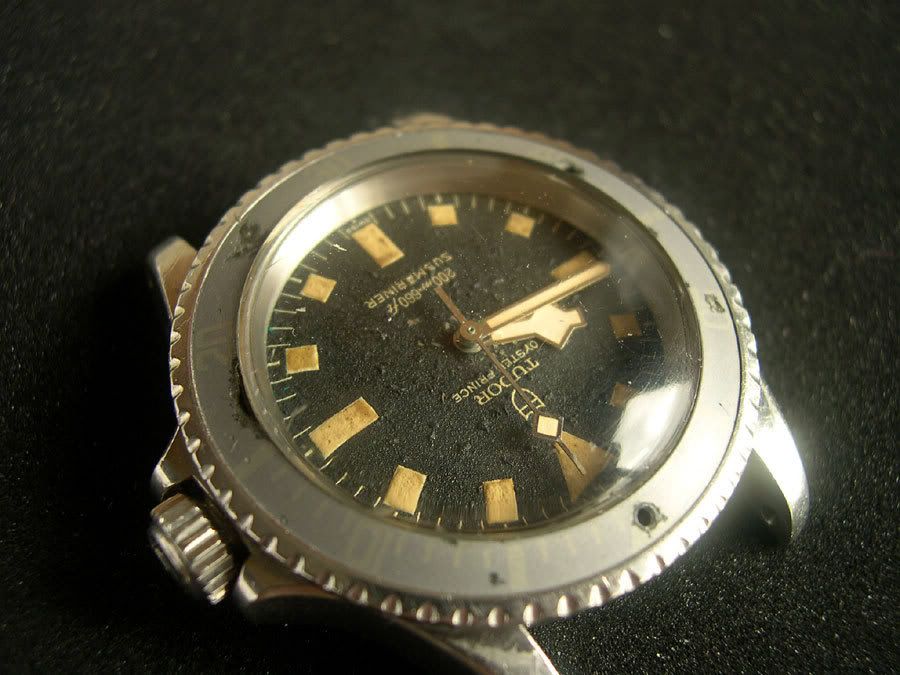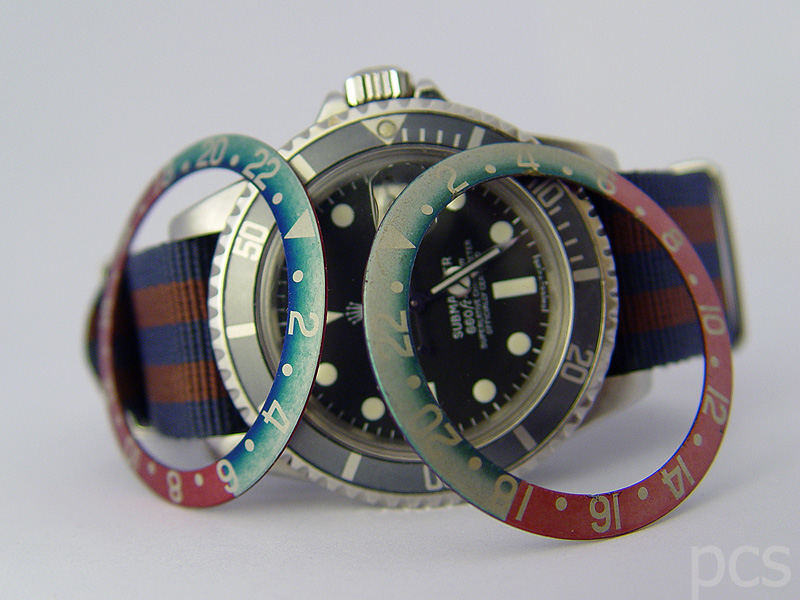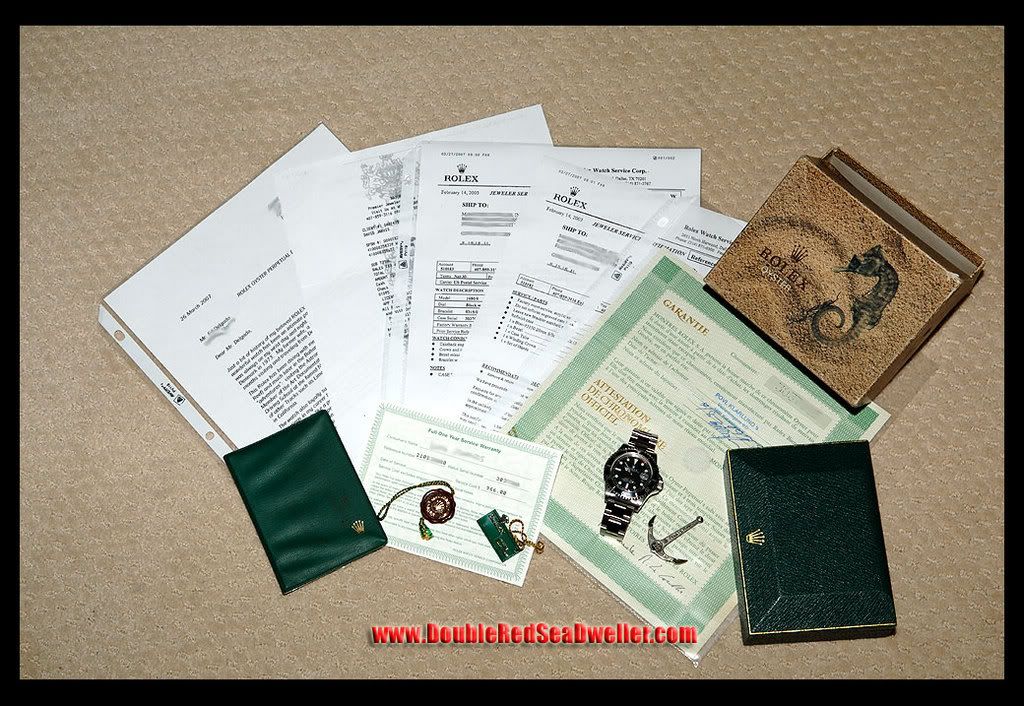OK - will try. The range should be: less humid than my shower, but more humid than inside my fridge.Originally posted by Hadoque
So this leads us to the ultimate question:
What would be the perfect range of environmental humiditiy to set-up for the storage of vintage watches.
( if possible, e.g. if we have a kind of "Humidor" or aircondition-device
We probably have not - but it's interesting to think about )
Does it help?
Ergebnis 21 bis 33 von 33
-
12.11.2007, 16:38 #21
To Hadoque:
Most serious vintage collectors would have gotten their watch with patina. There are actually collectors who like ONLY very dark patina. Therefore, the patina would be there before the watches would find themselves in a safe, and I doubt that humidity in there would cause that much modification. As you rightly point out, most safe come with a silica bag. Just checked in mine and, yes, I found one such bag.
As Stobe rightly points out, Oysters are not air tight. When you pull the crown out to reset the time or date, some air would get in, and if charged with humidity, some water as well. The best example of this would be on some old Tudor 7016 with black dial and square markers. This particular dial was notorious to degrade and flake over time because of humidity, so despite the watch being a Sub (case + crystal identical to the 5513) and water tight to 200m, the humidity contained in the air, when used in maritime environment would cause degradation to the dial.
Case in point (photo courtesy of Neo):

Later, when Rolex evolved the Tudor Sub to the reference 94010, they used a different coating to the dial and that resolved the issue - at least for the dial itself.
This picture also serves as an excellent illustration to John's question about bezel fading. UV exposure is definitely a factor over time, but I doubt it is the only one in those heavily faded bezels you sometimes see. More likely it would be a combination of heavy exposition to sunlight + salt water that would cause a bezel insert to fade dramatically.Gruß
Boris
-
12.11.2007, 16:43 #22Gruß
Boris
-
12.11.2007, 17:32 #23Yes, I also think that UV on its own would not have this effect at all.Original von Boris_Koch
This picture also serves as an excellent illustration to John's question about bezel fading. UV exposure is definitely a factor over time, but I doubt it is the only one in those heavily faded bezels you sometimes see. More likely it would be a combination of heavy exposition to sunlight + salt water that would cause a bezel insert to fade dramatically.
But quite interesting, that most faded Submariner bezels i saw, were faded
pretty consistantly. GMT bezels mostly fade from the outside to the inside.
 Gruß Percy
Gruß Percy

"Ferner wird hier auch auf Ihrem Profil sehr viel Diversität benötigt."
-
12.11.2007, 17:51 #24Yacht-Master

- Registriert seit
- 03.03.2006
- Beiträge
- 2.291
 Themenstarter
Themenstarter
Percy - looking at that GMT bezel on the right, I must conclude that either:
A)The red and blue paint used have very different properties causing uneven fade.
B)The watch was under a long sleeve shirt most days, with the top half exposed, and the bottom have safe under the shirt. John B. Holbrook, II
John B. Holbrook, II
OWNER - LUXURY TYME: The Rolex Reference Page
-
12.11.2007, 17:57 #25
The old GMT bezels were painted red, the blue paint was applicated above.
That's the reason why the blue paint fades out much faster.
Later, they changes from red to blue color and applicated te red paint above.
Those bezels are getting pink. I guess, the change from red to blue was in
the late 80's but I'm not sure about that.Gruß Percy

"Ferner wird hier auch auf Ihrem Profil sehr viel Diversität benötigt."
-
13.11.2007, 06:40 #26Date

- Registriert seit
- 02.10.2007
- Beiträge
- 43
John,
I'm a bit older than you and just learned that a dear friend from my college years suddenly died. It brings home my mortality.
Without foreknowledge (which of course we do not have) we may be aging faster than the components of our watches.
So...wear them all in the best of health and if you out-age your watch dial lumes, hooray for you; then buy another one to wear out!!
All the best,
Bob
-
13.11.2007, 14:17 #27
RE: I am kind of split on the question
thx boris for this interesting statement!Original von Boris_Koch
Originally, I took for granted, like most, that the more tritium gets exposed to light, the darker the patina.
Yet there's a couple of instances recently where guys have posted pictures of 5513 that they bought with a yellow patina, which became lighter over time as they were wearing them. One of them is a guy I know personally, his account is here. Sorry it's in French, but I think the pictures speak for themselves. The first was shot in June 2006 and show a uniform light yellow patina. The second is from early 2007, and the indexes are almost pure white. Some other accounts were given by Jaume on TZ Rolex vintage here and there.
Honnestly, I don't quite know what to make of it. It could be the result of the light exposure, different levels of humidity where the watch was stored, etc.
Could also be that tritium color degrades more to yellow when exposed to bright light as the radioactive material is still active. And then, when the degradation caused by radioactivity is dead, strong light would cause the same whitening effect it does on any colored object.
So if it were me, I'd do what I do with any other watch: store it in a safe when not wearing the watch. And this would never, ever prevent me from wearing the watch when I feel like it, ie either in summer or winter (not that we have much winter in Singapore anyways).
I guess, if anything, this shows that, as in all things Rolex, there is never one definitive truth (except for Mr Patrizzi of course, for any watch he happens to have on sale).
Boris
-
17.11.2007, 02:58 #28Date

- Registriert seit
- 02.10.2007
- Beiträge
- 43
Hey gang, I read an article that included the word eremacausis.

It is defined as: Gradual oxidation of organic matter from exposure to air and moisture.
Now we have a word to describe some of what may be happening to watch dials over time.
Maybe this describes why my hair is getting thinner and grayer

-
21.11.2007, 00:03 #29Datejust

- Registriert seit
- 19.11.2007
- Beiträge
- 99
Dont know if this helps, but I got this watch from the original owner of 30 plus yrs.. Worn everyday, eat and sleep with it.. even shower..
The soap build up was so thick that I could not read the serial or model numbers!! But the dial was nice, so I got it..
Anyway, he purchased the watch in Copenhagen and moved to the US, Florida.. The hot and humid Florida sun was a constant exposure to this dial and I am surprised on how white the markers are...
This leads me to believe that there is some credibility to the white=used watch, yellow=stored..


-
21.11.2007, 00:18 #30
Hm a very interesting thesis, would be interesting to find some more watches worn like that to prove that.
lg Michael

-
21.11.2007, 02:21 #31Yacht-Master

- Registriert seit
- 03.03.2006
- Beiträge
- 2.291
 Themenstarter
Themenstarter
Wow...like I needed another good reason why to move back to Florida!
 John B. Holbrook, II
John B. Holbrook, II
OWNER - LUXURY TYME: The Rolex Reference Page
-
21.11.2007, 03:32 #32Datejust

- Registriert seit
- 19.11.2007
- Beiträge
- 99
Well, so far its just anecdotal pieces. But JD posted a NOS watch with original box, papers, and even the original 1665 sticker on the caseback.. The watch had been sitting in a safe for 30yrs... The dial, hands and bezel dot.. yes, yellow in color..perfectly matching..
Obviously, no exposure to UV or very little humidity..
Anyway, its a puzzle but I am sure with more watches that come from their original stories and better understanding of the chemistry of tritium. Hopefully, we will have definitive answer..
-
21.11.2007, 09:20 #33
So maybe it really is a different chemical composition of the luminous material,
maybe depending on from which producer the dial came from.
Many maybes at all. Gruß Percy
Gruß Percy

"Ferner wird hier auch auf Ihrem Profil sehr viel Diversität benötigt."
Ähnliche Themen
-
"transitional" luminova dial question....
Von thesharkman im Forum Rolex - Haupt-ForumAntworten: 3Letzter Beitrag: 02.02.2005, 13:57 -
SD 1665 Experts please !!
Von Gatsby im Forum Rolex - Haupt-ForumAntworten: 23Letzter Beitrag: 18.09.2004, 11:22 -
Submariner Experts please ...
Von Gatsby im Forum Rolex - Haupt-ForumAntworten: 56Letzter Beitrag: 10.08.2004, 19:31




 Zitieren
Zitieren



Lesezeichen